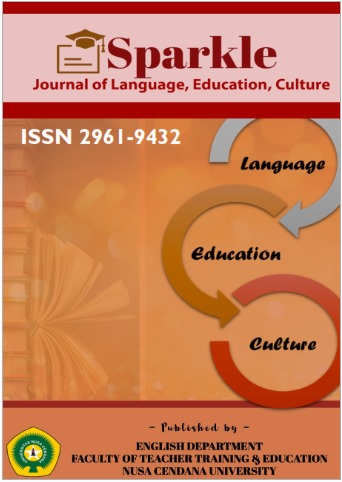COGNITIVE FACTORS AFFECTING ENGLISH SPEAKING IN THE CLASSROOM AMONG THE THIRD SEMESTER ENGLISH DEPARTMENT STUDENTS AT NUSA CENDANA UNIVERSITY IN THE ACADEMIC YEAR 2024/2025
Abstract
This study investigates the cognitive factors affecting English-speaking proficiency among third-semester students of the English Department at Nusa Cendana University. The researcher aims to identify specific cognitive barriers and their underlying causes that hinder students’ ability to speak English fluently in classroom settings. The researcher used a descriptive qualitative method, and data were collected through classroom observations, structured interviews, and note-taking with 20 randomly selected students. The findings reveal that students face significant challenges in five key areas: vocabulary limitations, grammar difficulties, pronunciation issues, inhibition (nervousness and hesitation), and mother tongue influence. Vocabulary limitations were the most prevalent, with students struggling to recall words, express ideas, and use academic language effectively. Grammar challenges, particularly with tenses and sentence structure, led to frequent errors and hesitation. Pronunciation issues, especially with complex words, affected students’ confidence and fluency. Inhibition, including situational nervousness and performance anxiety, further limited students’ participation, and confidence. Additionally, mother tongue influence caused students to switch between Bahasa Indonesia and English, often due to nervousness or vocabulary gaps. Despite these challenges, students employed various coping strategies, such as extensive preparation, improvisation, and simplification techniques, to complete their presentations. The study concludes that addressing these cognitive barriers through targeted interventions, such as structured vocabulary training, grammar reinforcement, pronunciation practice, and confidence-building activities, can significantly improve students’ English-speaking proficiency. The findings provide valuable insights for educators, curriculum developers, and policymakers to enhance English language teaching methods and classroom practices, ultimately fostering better student academic outcomes.

 Julio Yoarta Kapitan(1)
Julio Yoarta Kapitan(1)

